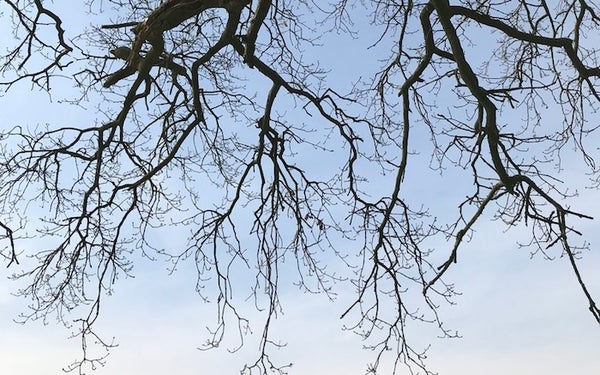This article was published in Scientific American’s former blog network and reflects the views of the author, not necessarily those of Scientific American
I recently noticed something about myself. Whenever I am thinking about the nature of living systems (as happens a lot in the field of astrobiology), and reading or studying work done on evolutionary biology, I have to refresh my mind constantly about the central tenets of Darwinian selection. This is not because they are particularly complex. Indeed, their remarkable simplicity is what makes the ideas so powerful. Instead it is because of what my mind wants to do with these ideas.
Putting aside the specifics of phenomena like DNA and genetics, the most critical element of Darwinian evolution is that biological forms exist, species emerge, change, persist or go extinct, entirely because they can. In a purely probabilistic sense. We look around at the world and perhaps marvel at the exquisite adaptations of an organism, but in truth those adaptations are just the result of a very refined winnowing out of other experimental possibilities that don’t increase the probability of reproduction and survival in the same way. And it is almost certainly a temporary victory amidst the turbulence of change and interaction that life deals with every millisecond of every day.
All that we see of life in a given moment, including the finer details of instinct and behavior, cooperation and competition, is here because in each and every part the present configuration of heritable traits and their underlying genetic material has offered a statistical opportunity for existence. Without wading too far into the debates about individual selection versus multi-level selection it’s also easy to see that social rules and structures can also be an emergent piece of the selective environment.
On supporting science journalism
If you're enjoying this article, consider supporting our award-winning journalism by subscribing. By purchasing a subscription you are helping to ensure the future of impactful stories about the discoveries and ideas shaping our world today.
Critically, there need be no decision making – at least not in the human sense. The decisions, if you still want to call them that, are made by probabilities. What you see is what has for now won the probabilistic battle, the traits that increase the odds of propagation of themselves into the future.
But it is so hard to think this way (for me at least). The English language doesn’t help. We talk about how organisms do things a certain way in order to survive, or how decisions are made to conserve energy or to ‘plan’ for seasonal change and future options. The truth though is that we might be the only species that, at least sometimes, really works this way. Instinctual behaviors have been selected for by the simple mechanism that alternate behaviors lower the chances of those individuals or groups propagating their genes further. Herein lays the essence of something like Hamilton’s Rule of kin selection.
To phrase this differently; it’s very easy to conflate agency (intentional action) with Darwinian selection, yet the latter requires no agency in that sense. This is undoubtedly a naïve thing to say, but I suspect that it’s not just me that struggles with keeping this straight in my head.
All of which makes me wonder about our continuing efforts to understand the origins and nature of life (a full 160 years after Darwin’s Origins of Species), and our efforts to imagine the nature of life elsewhere, beyond the Earth. Is our own agency, and conscious awareness, perhaps clouding some of our vision?
The problem is that our own agency is so precious to us. The idea that everything we see of life, and everything that we are, is entirely directionless, driven only by the fact that it exists because it can, is still disturbing even to the most rational scientific mind. Even as we recognize that fact we still seek rules and categorizations for the mechanisms of life. From the flow and dissipation of energy to the specifics of biochemistry. But doing so is itself one of our traits that has helped us exist in a far larger environment. It does not follow that the phenomenon of life will actually be entirely reducible in that way. Our sense of agency drives us along a particular path of analysis that may or may not work so well.
There is, however, a way in which we might circumvent our limitations. That is through the use of machines – not necessarily deep learning with its neuron-inspired components, but with some form of agency-free, consciousness-free engine. In other words, and perhaps rather ironically, if we really want to understand the world of evolutionary biology we need to build intelligences that are as different from us as possible.
